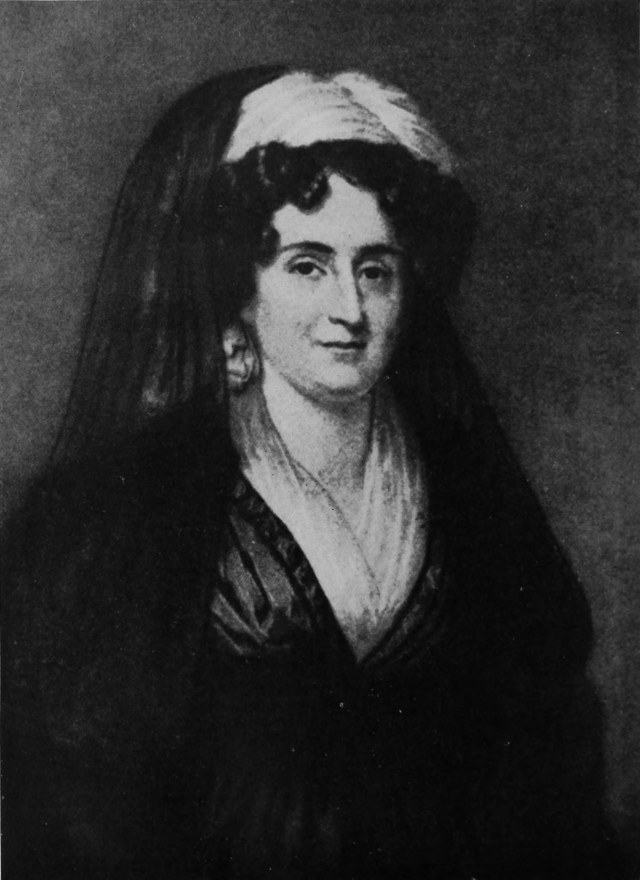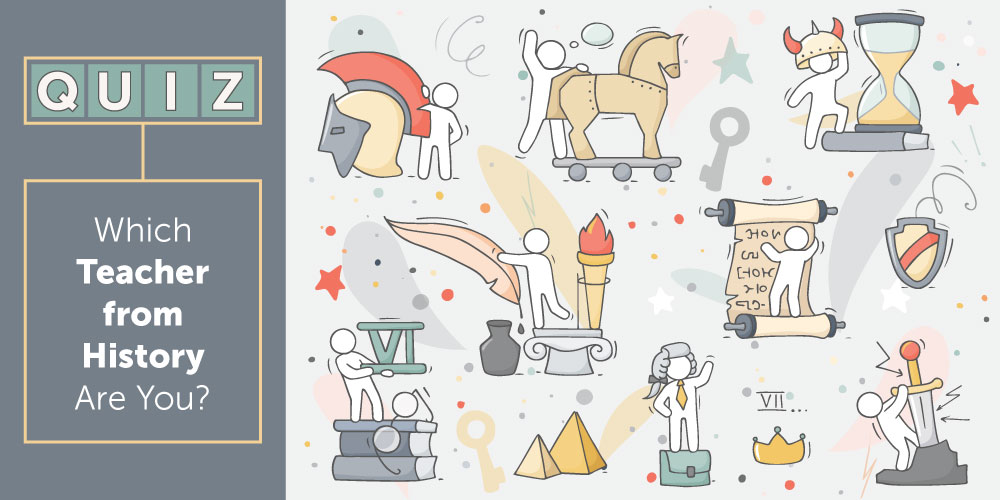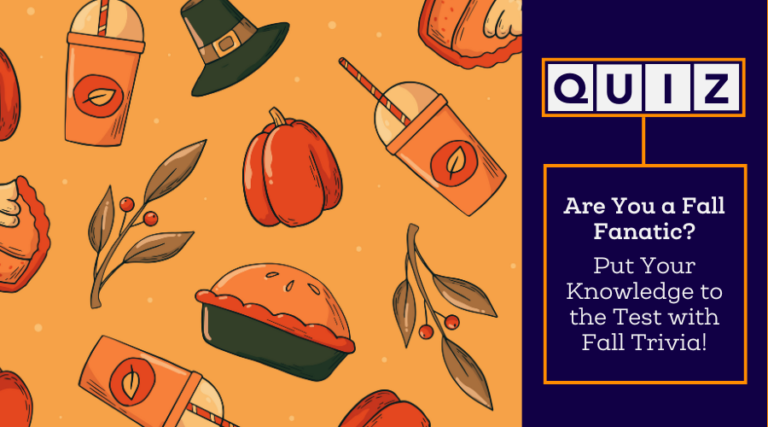Every time a surgeon performs a lifesaving operation…
Every time a concert pianist lights up Carnegie Hall…
Every time a kid offers a hand when their classmate falls during recess…
You better believe a teacher influenced that person by instilling practical, academic, and social–emotional intelligences. Throughout history, teachers have propelled our society forward. No question about that. The question is: Which teacher from history reflects your style in the classroom? Take this quiz to find out.
Pick one trait you want your students to gain from your teaching.
Which of these best describes your teaching philosophy?
What subject do you teach?
Pick one book.
If you could change one thing about public education, it would be…
Choose one fictional character.
Which Teacher from History Are You?
Albert Einstein

No doubt Albert Einstein has long served as the posterchild for academic excellence. After all, his last name is a label for brainiacs across all academic disciplines. Even though his fame comes from the groundbreaking development of the theory of relativity, the world’s most famous physicist also spent a generous amount of time at the helm of a classroom. In other words, the first Einstein made a bunch more Einsteins.
What does this result mean for you? It means that you’re a teacher who never stops learning, even though it’s a means to an end. After all, your main goal is for your students to benefit from all the academic goodies stewing in your brain.
What does this result mean for you? It means that you’re a teacher who never stops learning, even though it’s a means to an end. After all, your main goal is for your students to benefit from all the academic goodies stewing in your brain.
Anne Sullivan

Best known for her work with Helen Keller, Anne Sullivan’s teaching epitomizes the term miracle worker. Helen Keller was a child who functioned without hearing or sight, gifts that most of us take for granted. Somehow, despite the limitations of her time, Anne Sullivan taught her student how to communicate.
What does this result mean for you? It means that you see students as individuals who have unique strengths and weaknesses. You believe in the power of a customized education that promises a transformational learning experience for every child. It’s difficult at times, and you may need help from IEP resources, but you’ll never stop striving to make full inclusiveness a reality.
What does this result mean for you? It means that you see students as individuals who have unique strengths and weaknesses. You believe in the power of a customized education that promises a transformational learning experience for every child. It’s difficult at times, and you may need help from IEP resources, but you’ll never stop striving to make full inclusiveness a reality.
Emma Willard

Emma Hart Willard dedicated her life and work to her students, especially those whom society deemed unfit for equal opportunities. In the interest of equity, she became a pioneer inside and outside of the classroom, eventually founding the first-ever school for women’s higher education. Isn’t it amazing to think about how many millions of students still feel the positive impact of Emma Willard’s work?
What does this result mean for you? It means that you realize the importance of creating massive transitions in the classroom. Specifically, you see an issue and you make the adjustments necessary for everyone to receive the quality education they deserve. Sometimes, those changes are subtle. But other times, the improvements require massive reengineering. Whatever the case may be, thank you for everything.
What does this result mean for you? It means that you realize the importance of creating massive transitions in the classroom. Specifically, you see an issue and you make the adjustments necessary for everyone to receive the quality education they deserve. Sometimes, those changes are subtle. But other times, the improvements require massive reengineering. Whatever the case may be, thank you for everything.
Clara Barton

Though she is best known as the founder of the American Red Cross, Clara Barton also excelled as a teacher. Though her era allowed (and often encouraged) physical punishment, Ms. Barton earned a lot of credence with today’s teachers by selecting more effective and less barbarous forms of behavior management. Oh, and there was also the fact that she opened her own school. Nothing to sneeze at there.
What does this result mean for you? It means that your environment has little influence on your accomplishments. Are you impacted by negativity? Sure, what teacher isn’t? But somehow you manage to rise above the ruckus. You do this less for your own health and well-being and more for your students’ ongoing social, academic, and emotional growth.
What does this result mean for you? It means that your environment has little influence on your accomplishments. Are you impacted by negativity? Sure, what teacher isn’t? But somehow you manage to rise above the ruckus. You do this less for your own health and well-being and more for your students’ ongoing social, academic, and emotional growth.
J. R. R. Tolkien

Yes, the guy who invented Middle Earth, John Ronal Reuel Tolkien, was also a teacher. It comes as no surprise that he specialized in languages, specifically Old and Middle English. Sure, he’s more well-known for that three-book story about a couple of guys returning an evil ring to a volatile, lava-spewing volcano, but he nevertheless deserves credit for his accomplishments as an educator.
What does this result mean for you? It means you focus on the wonder of learning, leveraging the power of the imagination across all disciplines. And this schtick doesn’t only cater to elementary kids. High schoolers must also leverage innovation to solve problems and develop greater critical thinking. After all, what’s intelligence without creativity?
What does this result mean for you? It means you focus on the wonder of learning, leveraging the power of the imagination across all disciplines. And this schtick doesn’t only cater to elementary kids. High schoolers must also leverage innovation to solve problems and develop greater critical thinking. After all, what’s intelligence without creativity?







